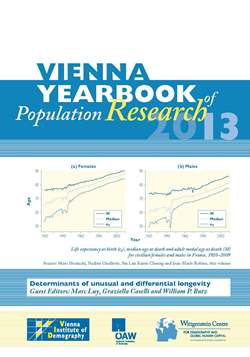
Vienna Yearbook of Population Research 2013, pp. 205-218, 2024/12/12

It is well established that cigarette use contributes to an extraordinary increase in the risk of mortality. Nevertheless, a small proportion of long-term chronic smokers manage to reach extreme old age, potentially suggesting that this sub-population may have distinct biological protection or repair mechanisms that allow it to better cope with the hazards of smoking. Using data from the Third National Health and Nutrition Examination Survey (NHANES III), on 5,423 adults aged 50 and over, we examined how among smokers and never-smokers mortality differs over the age range and whether smoking-related differences in markers of physiological functioning converge with increasing age. Our findings suggest that differences in mortality risk between current smokers and those who have never smoked are significantly less pronounced at older ages, and that smoking did not significantly contribute to subsequent mortality risk for individuals who had survived to at least age 80. Furthermore, among those who were less than 80 years of age, smokers had significantly elevated levels of inflammation in comparison to never-smokers, there were no such differences found between smokers and never-smokers at age eighty and above. Finally, we found a crossover effect for HDL cholesterol—with smokers showing worse levels at younger ages than never-smokers and better levels, although not significant, at older ages. Our study presents evidence that long-lived smokers may represent a distinct and biologically advantaged group, who are less susceptible to the negative side effects of smoking and perhaps other environmental insults.
Keywords: Mortality; Mortal Age; Lifespan; Smokers